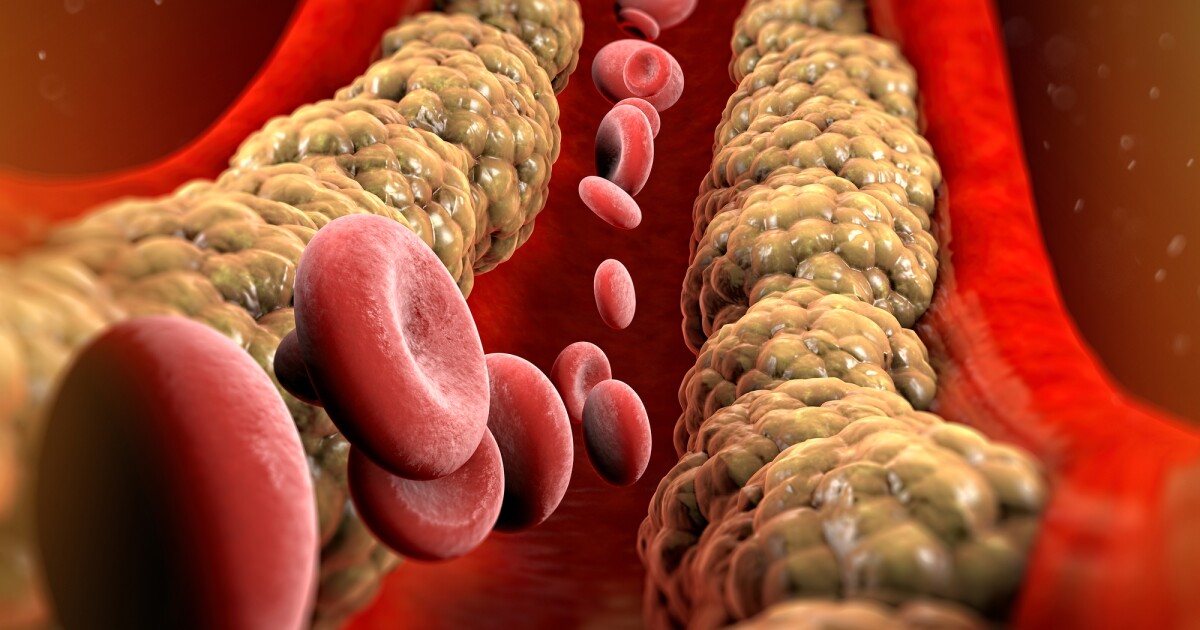Researchers have developed the world’s first oral drug to target a type of cholesterol that was previously intractable and largely genetic, making it difficult to control through exercise, diet or other lifestyle factors.
Studies have shown that high levels of lipoprotein (a) or Lp (a), called “LP-little-A”, increase the risk of heart attack or stroke, especially in familial hypercholesterolemia, an inherited condition characterized by high cholesterol. Lp(a) is a type of low-density lipoprotein (LDL) cholesterol, known as ‘bad cholesterol,’ but it is sticky, increasing the risk of blockages and blood clots (atherosclerosis) occurring in the arteries.
Commonly used cholesterol-lowering drugs such as statins do not have the same effect on Lp(a), and because it is largely caused by genetics, Lp(a) is difficult to control with diet, exercise and other lifestyle changes. There are currently no approved drugs that target Lp(a).
However, a team led by researchers at Monash University have developed and tested a groundbreaking, world’s first oral drug, muvalaplin, which interferes with the body’s ability to make Lp(a).
“When it comes to treating high Lp (a), a known risk factor for heart disease, our doctors currently do not have effective tools in their kit,” said Stephen Nicholls, lead author of the study. “Lp(a) is a silent killer with no cure, this drug changes that.”
Lp (a) is composed of one molecule of LDL-particle containing apolipoprotein B100 (apo B100) and one molecule of glycoprotein called apolipoprotein (a), or apo (a). Mulvalaplin disrupts the interaction between apoB100 and apo(a), resulting in lower levels of Lp(a).
The trial enrolled a total of 114 participants; 89 were treated with muvalaplin, and 25 were given a placebo. The trial was conducted in two parts. The first part tested the effect of a single dose of muvalaplin in increasing doses, from 1 mg to 800 mg, in healthy participants aged 29 years. to 800 mg) was taken for 14 days by healthy participants aged 32 years and who had elevated Lp(a) plasma levels.
Baseline Lp(a) and LDL cholesterol levels were taken at the beginning of the trial and the effect of muvalaplin on Lp(a) levels was observed. The researchers saw a reduction in Lp(a) levels from baseline as early as day two with participants receiving multiple doses. The reduction of Lp(a) was 64% to 65% at doses of 100 mg or more, which occurred on days 14 and 15.
For participants in the single dose escalation group, the most common adverse events were headache (33%), back pain (13%) and fatigue (11%). The multiple dose group reported experiencing headache (31%), diarrhea (20%), abdominal pain (15%), nausea (10%) and fatigue (10%). No deaths or adverse events have been reported.
The researchers noted the study’s limitations, namely that it was a small, phase 1 study. Larger, longer clinical trials in different populations, including those with heart disease, will be needed to establish the safety profile of muvalaplin. Additionally, study participants had low to moderate Lp(a) levels; The target audience for the drug may include people with high Lp(a) levels.
However, as the first oral agent developed specifically to lower Lp(a) levels, muvalaplin is a promising development.
“This drug is a game changer in more ways than one,” Nicholls said. “Not only do we have an option to lower this type of cholesterol, but being able to deliver it in an oral tablet means it will be more accessible to patients.”
The study was published in the journal JAMA Network.
Source: Monash University
#Worlds #drug #lowers #bad #cholesterol #genes





